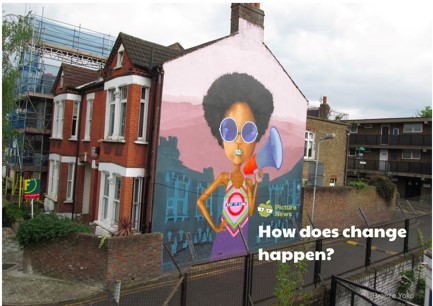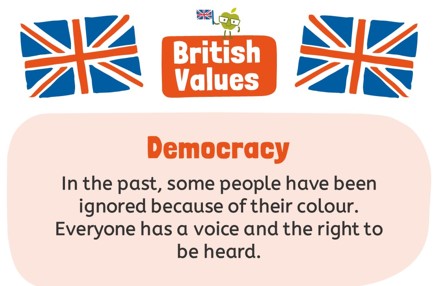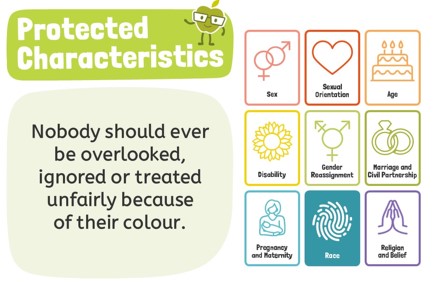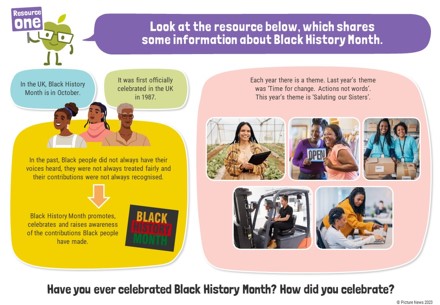British Values
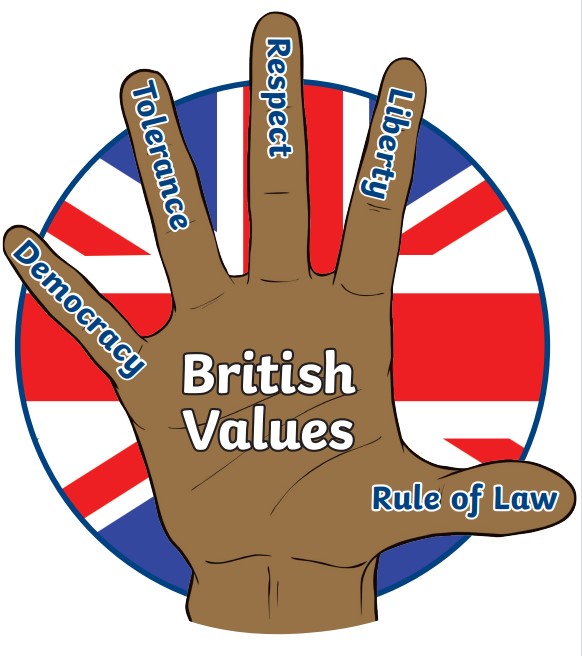 At Woodlands Primary School we agree with the Department for Education’s five part definition of British Values:
At Woodlands Primary School we agree with the Department for Education’s five part definition of British Values:
- Democracy
- The rule of law
- Individual liberty
- Mutual respect
- Tolerance of those of different faiths and beliefs
We believe it is incredibly important that these British Values permeate through every school in the country. At Woodlands Primary you will encounter these values throughout our everyday school life and, in particular, through our promotion of Spiritual, Moral, Social and Cultural understanding and through our school values – Happiness, Courage, Respect, Friendship and Responsibility.
Below is just a snap shot of how we promote these values in our school community:
Democracy
Pupil voice plays a big part in life at Woodlands Primary School. Our School Parliament plays a strong role in our school; they are democratically elected by their class peers and are involved in making Woodlands Primary School a better place to learn.
Pupil questionnaires and interviews are also conducted throughout the year. We know that the formation of the School Parliament and the active participation of our pupils will sow the seeds for a deeper understanding of democracy in the future.
We give our pupils a voice in decisions that affect their school life. Pupils participate in democratic processes, such as electing representatives for the School Council and other leadership roles. We hold regular discussions and class votes on topics that are important to our pupils, helping them to understand the principles of fairness, equality, and shared decision-making.
-
School Council: Elected by their peers, our School Council members meet regularly to discuss and influence school policies, activities, and projects. This allows pupils to experience democracy in action and understand its importance in wider society.
The Rule of Law
Understanding the importance of laws, rules, and responsibilities is a vital part of school life at Woodlands. Our pupils will encounter rules and laws throughout their entire lives. We want them to understand that whether these laws govern the class, the school, the neighbourhood or the country; they are set for good reasons and must be adhered to. From the classroom to the playground, children learn why rules are necessary, how they protect us, and what happens when they are broken. This understanding of the importance of rules will be consistently reinforced through assemblies and our curriculum.
The involvement of our pupils in the creation of the school rules helps them to understand the reasons behind rules and the consequences if rules are broken. Our School Parliament and Children’s Safeguarding Panel, which are both pupil led, provide pupils with the responsibility to make mature choices about suitable consequences for the negative behaviour of their peers. We allow opportunity to debate and discuss the reasons for laws so children can recognise the importance of these for their own protection.
Throughout the year we welcome visits from members of the wider community including the police, war veterans, the fire brigade and many more. We believe that clear explanations and real life stories emphasise the importance of the Rule of Law for our pupils.
-
Visits from Authorities: We welcome visitors from the local police and other services to explain the role of law in keeping people safe and ensuring justice.
Individual Liberty
We invest a lot of time in creating a positive culture in our school, so that children are in a safe environment where choices and freedoms are encouraged. In lessons we encourage children to choose appropriate ways of tackling problems and tasks giving them more freedom to determine their own learning. We encourage our pupils to make choices in a safe and supportive environment. By providing a nurturing atmosphere, we help children develop self-confidence and the ability to take responsibility for their actions. Pupils are encouraged to express their opinions, pursue their interests, and understand their rights within the school and wider community.
We offer a range of clubs which pupils have the freedom to choose from, based on their interests. Through our E-Safety and PSHE sessions, we educate children on their rights and personal freedoms, as well as supporting them in recognising how to exercise these freedoms safely. At Woodlands Primary School we believe that valuing choice and freedom in daily school life will foster a value for individual liberty as the children embark upon their adult lives.
-
Freedom of Choice: Pupils are given the freedom to choose extracurricular activities, take on roles of responsibility, and make informed choices about their learning.
-
E-Safety and Personal Safety: We educate our pupils about their rights and freedoms while also providing guidance on staying safe, especially online, so they understand that liberty comes with responsibility.
Mutual Respect
Our school mission is to provide an environment in which every child can be cared for spiritually, morally, socially, culturally, intellectually and physically, allowing everyone to be the best that they can be! Our school has a growing number of different languages and ethnic groups and our pupils learn together with absolute respect for each other. Mutual respect is at the core of our school life. Respect is at the heart of everything we do at Woodlands Our school ethos, rules, and relationships are built on mutual respect between pupils, staff, and the wider school community. We promote positive behaviour, good manners, and understanding of others’ feelings and perspectives.
-
Restorative Approaches: We use restorative practices to resolve conflicts, helping children to reflect on their actions and understand how they affect others. This approach reinforces the importance of empathy and mutual respect.
-
Celebrating Diversity: We actively celebrate cultural and social diversity through assemblies, themed days, and the curriculum to foster respect for different backgrounds and experiences.
Tolerance of those of different faiths and beliefs
We offer a culturally rich and diverse curriculum in which all major religions are studied and respected. Parents and leaders of different faiths are welcomed to the school to share their beliefs, while we also visit numerous places of worship. At Woodlands Primary School we strongly believe that tolerance is gained through knowledge and understanding. Through our curriculum and the routines of our daily school life, we strive to demonstrate tolerance and help children to become knowledgeable and understanding citizens who can build a better Britain for the future.
At Woodlands, we value the richness of our diverse community. We promote understanding and tolerance of people with different faiths, beliefs, and cultural backgrounds. Through the curriculum, assemblies, and special events, pupils learn about a variety of religions and worldviews, fostering an environment of inclusion and tolerance.
-
Religious Education: Our RE curriculum explores different faiths, including Christianity, Islam, Hinduism, and Judaism. We encourage pupils to ask questions and explore different beliefs in a respectful and open-minded way.
-
Cultural Celebrations: We mark important religious and cultural festivals throughout the year, allowing pupils to share their own experiences and learn from others.
Preparing Pupils for Life in Modern Britain
At Woodlands Primary School, we aim to create an inclusive environment where pupils feel valued and respected, and where they understand their role in contributing to society. By promoting British Values, we are helping to equip our pupils with the skills, knowledge, and attitudes they need to become thoughtful, responsible citizens in a diverse and ever-changing world.
Together, we foster a community where everyone feels safe, respected, and ready to take on the challenges of tomorrow.
Embedding British Values in Our Curriculum
British Values are embedded throughout our curriculum and in the daily life of our school. Through subjects such as PSHE (Personal, Social, Health, and Economic Education), history, and RE (Religious Education), pupils explore themes of democracy, justice, liberty, and respect. We also ensure that assemblies and themed events promote reflection on the importance of British Values in our everyday lives.
British Values Posters in Every Classroom: Every classroom at Woodlands has a British Values poster displayed prominently. These posters serve as a constant reminder of the core values we uphold, and they are referred to regularly during lessons and discussions. Teachers use these posters to link classroom activities, subjects, and discussions back to British Values, helping pupils to recognise how these values apply to their learning and everyday life.
Lesson Integration: Whether during PD, history, or other subjects, we encourage teachers and pupils to connect lesson content to one or more of the British Values, helping to reinforce their understanding in a meaningful way.
-
Using Newsround and Picture News Assemblies to Discuss British Values
We also take advantage of real-world events to explore and apply British Values. Each day, when we watch Newsround, we hold discussions about which British Value relates to the news stories we’ve seen. This allows pupils to:
- Understand how British Values are present in current events.
- Think critically about how these values influence our society.
- Reflect on how they can demonstrate these values in their own lives.
Our weekly Picture News assemblies provide another platform for promoting British Values. Each week, we explore a news story or theme that links to British Values, and pupils are encouraged to discuss and reflect on how these values are represented in the world today.
-
Whole-School Reflection: During Picture News assemblies, we actively ask pupils to consider how the story relates to democracy, law, respect, and tolerance, fostering a whole-school dialogue about these values.
-
Interactive Discussions: Pupils are encouraged to ask questions, share their thoughts, and link the assembly’s theme to their own lives and experiences.
During weekly assemblies, the children discuss relevant news articles and how they link to British Values, for example:
